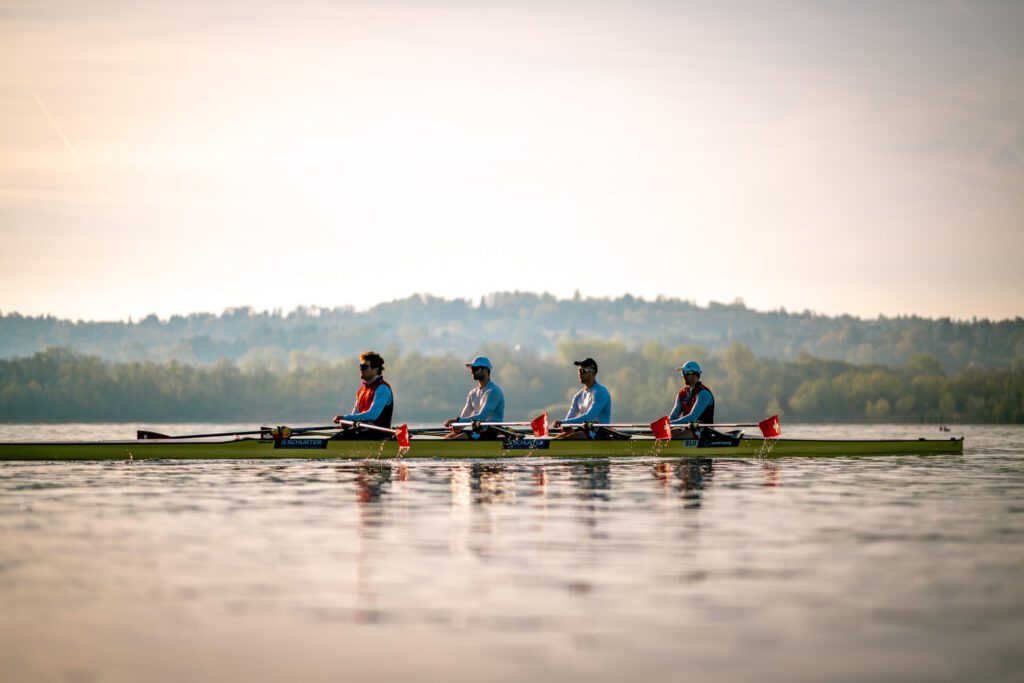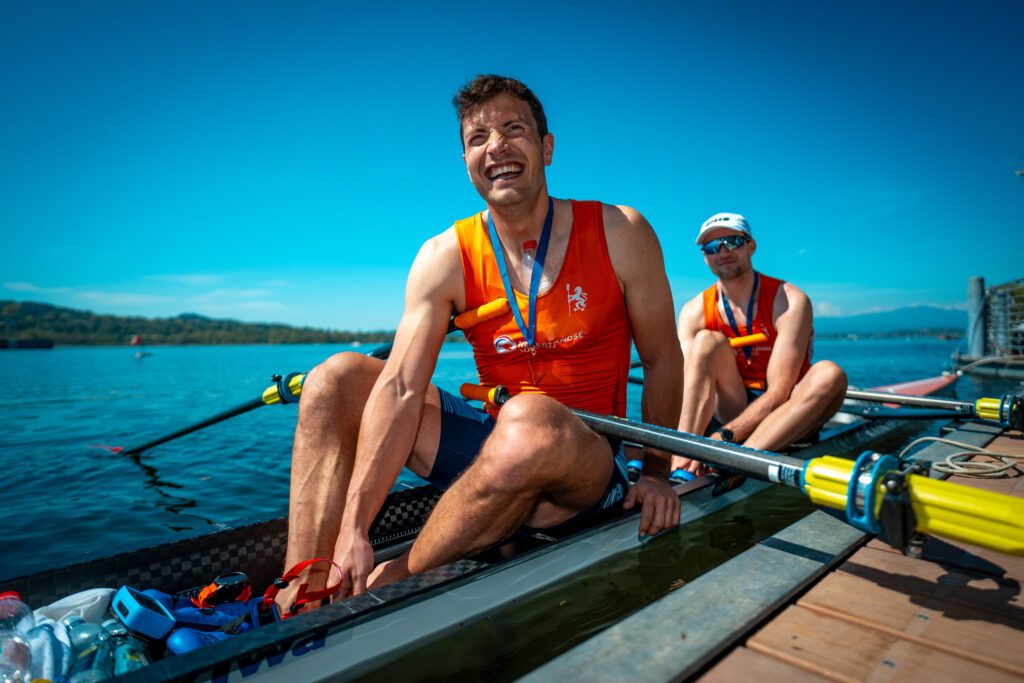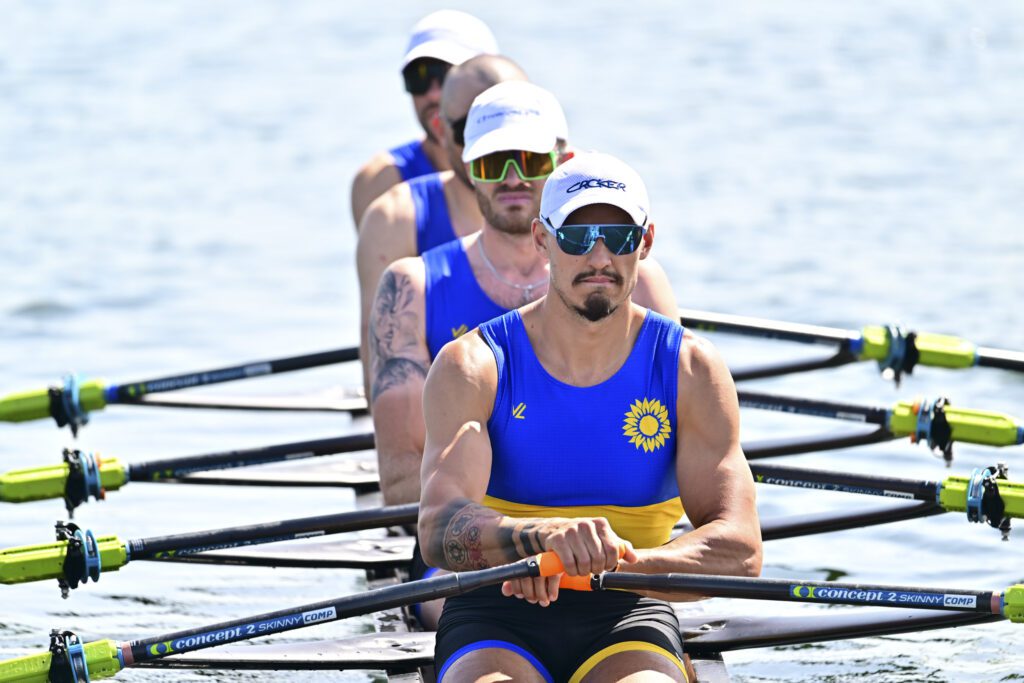Many of Steve Gladstone’s interviews read the same. And as he sits across from me leaning back in his chair, heels crossed on his desk, hands folded behind his head, silver belt buckle engraved with his initials, it is very obvious this is a position he knows well. Cast from a similar mould as his radio journalist father, he is a man comfortable in his control to tell his own story. Only once in our conversation did he ask for a comment to be withheld from the article.
Gladstone quipped, “Memories aren’t really what happened, they are memories of what happened.” This practiced interpretation of his coaching life is not trite or any less meaningful for its repetitive nature, but it would bore my editor. If you are looking for him recounting the glory of Cal or Brown, or Cal again, I suggest you find those other articles. They accurately detail his winning record faithfully and present to you a champion coach.
I am less interested in his accomplishments, than the character of this coach. He is a competitive man, but what is it about his breed of competitiveness that makes him an anomaly among collegiate rowing, separating him from coaches like Harry Parker who spend decades building and sustaining one program, creating a legacy? What compels, or forces, a coach of this calibre to leave successful programs when they reach dominance? Is it harder to build up programs or to stay and nurture then through the peaks and troughs? As indelibly as Parker’s name will be linked with Harvard rowing, the legacy of Steve Gladstone is more tightly tied to the success he has found through a process.
“Gladstone is a Mary Poppins-like character, with an almost Nietzschean philosophy.”
Kate Apfelbaum
As our conversation wore on, I found striking similarities between his description of his process and the one I experienced trialling with Sean Bowden at Oxford University Boat Club. It is a regimented method, one that has been tried, tested, and improved upon. I can’t say that it was joyful, but I can say definitively that the success and failure I found in that experience taught me the most about the sport, about competition, about what it means to take ownership of an opportunity. If you locate that ability to lead a mission with a constant internal struggle with risk, satisfaction, and forward motion, you will begin to grasp the fascinating character of Steve Gladstone.
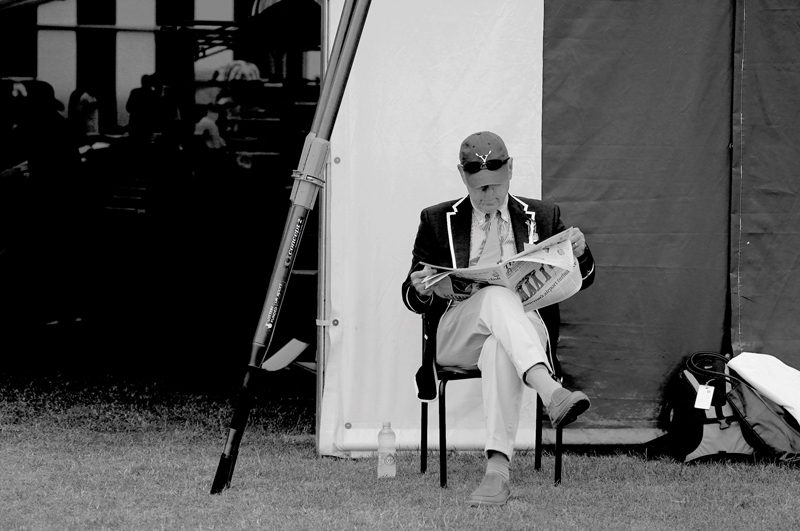
Photo Gadstone at Henley
Credit Naomi Baker
He is a Mary Poppins-like character, with an almost Nietzschean philosophy. He is compelled by the challenge of building and restoring rowing programs, of implementing a process that makes a boat sing and young men grow up. He answers the call of programs that need him. Yet, his satisfaction lies not in the accomplishment, but in doing the work. When the job is done, he grows antsy, yearning for the next challenge, the next risk. And so, the winds change, he grabs his megaphone and looks for a higher peak to climb.
On the process
As the crafter and leader of a mission, Gladstone is at his best when in control. His strength lies in the ability to run his own program, to pursue challenges of his determination. His approach encompasses the visceral and quantifiable aspects of making a boat sing; one has to have a vision, set a course of action with a high standard, and create a template that provides space for the athletes to take ownership of their experience.
“The most important action to take is to communicate with the athletes – it is necessary for them to understand their role and the role of the coach. It is not necessary for them to be concerned about the biomechanics that they are being taught or the training cycle. The template, of course in itself, will guarantee nothing. The athletes must understand that it is the devotion they have to what they are being taught, and the faith that they generate among themselves by taking the right actions that make the boat fast. The outcome is in their hands. They are preparing for a contest. They are preparing physically and emotionally to win the race. Trust is the operative word.”
Does that talk make a difference? For some people it does right away, for others it may take months or perhaps years. But regardless of how quickly it permeates, it must be put out there. Not only does it need to be presented from the beginning, the squad needs daily reminders. When the eights line up at practice, he simply says, “It’s time to go to work.”
The message is “that it is an exacting process with high standards, and if they are honest, they have got to deal. They need to combine their academic work, social work, and dovetail this with their training.” The biomechanics and physiological training have developed over time, but if you ask a Gladstone rower from any decade from either coast, he believes the experience of being coached on the water has stayed mostly the same.
Honesty is a requirement for everyone in the boathouse. Coaches “have to tell the truth every day. People can detect bullshit, and once people detect that you lose all credibility. You have to tell the truth about what is in front of you. They don’t have to accept it, but you want them to know that this is the path and this is the standard.” The coach’s job is not to please. The coach’s job is to prepare athletes to race. If a bit cold and calculated, the track record begs for contradiction.
In an interesting juxtaposition, this process, if done properly, creates a situation whereby the coach is happiest when the squad is in the most gruelling stages of preparation, and experiences the greatest discontent coming once the victory is in hand. For the athletes, the emotions come in reverse.
“I am not Saint Stephen – he was a martyr, I am not. I coach, I don’t do this to save souls. That being said, the by-product of the right action does touch the soul.”
Steve Gladstone
On leadership
Gladstone spoke at length about leadership and his role as a coach, but I sensed somewhat of a detachment in him from the athletes. And I wondered, to what extent do the athletes play into his compulsion to coach? To what extent is this all a personal quest for him?
Gladstone presented the answer himself; “I am not Saint Stephen – he was a martyr, I am not. I coach, I don’t do this to save souls. That being said, the by-product of the right action does touch the soul.” That quote in itself beautifully depicts his vision of coaching. He does not play the saviour and openly admits the central role his personal compulsion to conquer a challenge plays. However, he understands, from experience, the deep affect this method can have on the souls of his rowers.
He brings the mentality of an army general; modelling the devotion he demands from his rowers as he fastidiously plots out their campaign. Gladstone fluently speaks the language of legends of rowing, as no doubt others will with his words. Gladstone borrows from George Pocock’s interview in the film Symphony of Motion to describe his view on leadership. “It’s not so much the knowledge of the coach, it’s his ability to lead’. George talks about Napoleon, ‘and how before battle he would gather his marshalls and look at them and nod.’” Gladstone continues, “Perhaps it’s the ability to draw people to a point. Obviously the biomechanics are extremely important and conditioning is extremely important, those are bedrock essentials, but almost all crews have that when you get to the very top level. The distinction between the ones that win and lose is leadership.”
To emphasize this belief, he recounts a humorous anecdote. In his first year at Princeton, Gladstone knew he wanted uniformity, blades in the water at the same time, but that was about it. Following a middle of the pack finish in the small final at Eastern Sprints, his crew had a “Come to Jesus” moment.
What to do? “We had a very serious team meeting. What adjustments were we going to make? After much discussion, the group decided that not eating dessert and doing 300 jumpies every day was the answer. That was our scientific 15-day plan. They stuck with that plan, and in the IRA the crew led the field until they were rowed through by Penn with 30 strokes to go. The lesson I took from that experience was that it is not so much the content of the plan, but the crew’s confidence in it”.
On compulsion and getting antsy
Beginning with his days at Kent, Gladstone finds myriad aspects of rowing compelling, from the instantaneous impact a rower can have on the boat from one stroke to the next, to the process of building a program with fast crews. This compulsion to take on a risk with a new program is truly an irresistible urge for Gladstone.
He is most comfortable when he alone owns the risk and determines the path. He uses the metaphor of a mountaineer to describe both his system and his desire for greater challenges, but what goes unsaid in this metaphor is the assumption that the climber alone selects the mountain and charts the ascent. It is not ascent by committee.
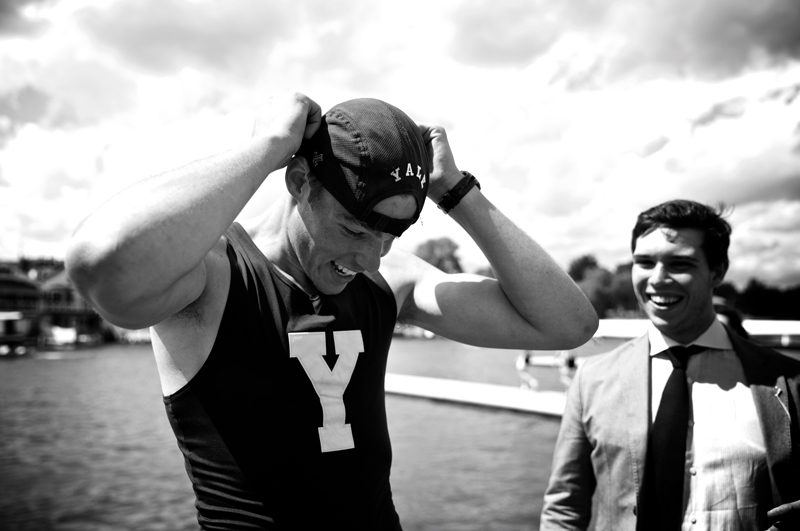
Photo One of Gladstone’s Yale oarsmen at Henley
Credit Naomi Baker
“I have read when you are mountaineering, you study the mountain, and you make plans on how to ascend the summit of that mountain. Then you do it. Then what happens over time is you look for more challenging ascents on that mountain. I come back to it because I really miss the process, and when I’m in the middle of it, I know that the work is good work. The experience of the athletes will mark their lives. That is pretty compelling.”
Compulsion morphs into restlessness, for Gladstone: “When the process ceases to be a joyful challenge as opposed to a burdensome. I want something new. I want the tension, but when it becomes burdensome, that is a reflection on me not on the program, I need to go.” The ease with which he describes his methodology belies the enormous toll dedicating a decade or more to restoring a program takes on the coach. It seems that when he is confident the job is done, the door is open for his personal cocktail of fatigue, impulsiveness, and restlessness. “I see this in retrospect,” he explains. “After 13 years at Brown, I was getting antsy. In other words, the boathouse had just been rehabbed, the program was dynamite, and I was saying ‘It’s really done. What to do next?’ The same is true at Cal, and fortunately we are just in the beginning phase at Yale. At best, we are a third of the way up the mountain.”
Closing words
“I don’t consider myself a missionary, but I do know that in working to get the boat across the finish line first you meet your demons, then you meet yourself. Your mettle will be truly tested. After you’ve sworn and cursed you’ll never do it again. It is a process. What better word than process? If you’re really willing to risk, it touches the soul. It builds character. How good is that?”
M
This article first appeared in

